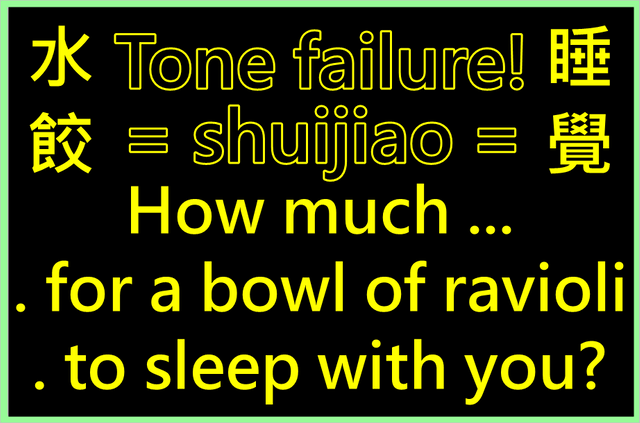
Confusing Toneless Pinyin
水餃 "ravioli" = shuijiao = 睡覺 "sleep"? Same spelling, but very different for Chinese ears: false homonyms!
GR Tonal Spelling is a great solution for this false homonym problem. It can help foreign beginners notice, remember and produce the four tones of Mandarin in the right places. After they have mastered the 4 tones, they can gradually shift over to using Hanyu Pinyin, a derivative system.
水餃一碗多少錢? = “How much is a bowl of Chinese ravioli (dumplings)?” If you spell this sentence in Pinyin romanization, it becomes Shuǐjiǎo yīwǎn duōshǎo qián?
The problem is that many westerners, especially native speakers of English, are not used to listening for tones or adding diacritics to every single syllable. Omitting the accent marks on an English word like résumé or fiancée is not serious, but in Chinese the tone marks are critical!
While it is true that some foreigners can muddle through without proper tones, that's only because their friends or teachers can guess what they probably want to say. Strangers will not be so forgiving, and your even friends will not understand if you talk about unfamiliar topics.
Tone Blindness
As a result of their #toneblindness , some foreigners overlook the tone marks and remember a sentence like “How much is a bowl of Chinese ravioli (dumplings)?” as simply Shuijiao yiwan duoshao qian?
In this case, if the tones come out wrong, the sentence can become 睡覺一晚多少錢?Shuìjiào yī wǎn duōshǎo qián? “How much will it cost [to sleep with you] for one night?” A waitress will certainly not be pleased to hear this!
GR Tonal Spelling
GR Tonal Spelling, which uses #mnemonics ( #psychology tricks) to make tones crystal clear, is a much better romanization, especially for beginners. Here’s why:
The word 水餃 “Chinese ravioli ( dumplings is a misleading synonym)” is spelled shoeijeau :
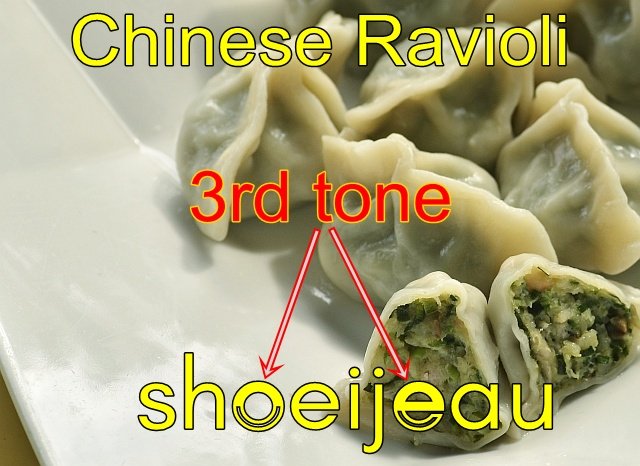
The “bowl” of the o in shoei “water" and the e in jeau “ravioli" are indelible and unforgettable reminders that shoei and jeau are 3rd tone syllables (3rd = low dipping tone).
Similarly, 睡覺 “sleep” is spelled shueyjiaw :
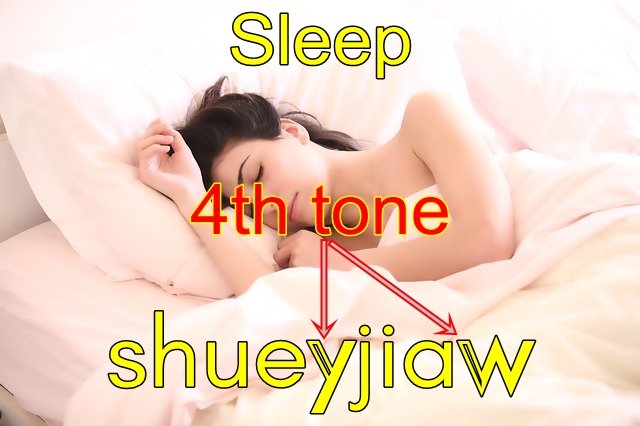
The first stroke of the y in shuey "sleep" and the w in jiaw are reminders that shuey and jiaw are 4th tone syllables (a short, abruptly falling tone). ** = 4th tone #mnemonic
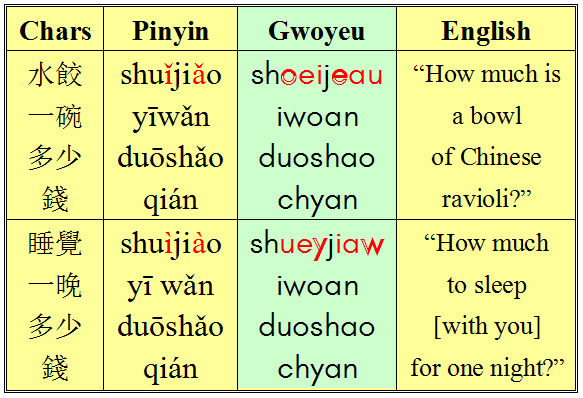
Notes on Chinese grammar
1. Chinese sentences often use a topic-comment construction. Thus水餃,一碗,多少,錢? Shuǐjiǎo yīwǎn duōshǎo qián? / Shoeijeau iwoan duoshao chyan translates word for word as “Ravioli, one bowl, how much, money” (no verb is needed).
2. Chinese is a high context language. In practice, this means that many elements are inferred from context. Thus, 睡覺,一晚,多少,錢?Shuìjiào yī wǎn duōshǎo qián? / Shueyjiaw iwoan duoshao chyan? translates as “Sleep, one night (“one bowl” sounds exactly the same, but doesn’t make sense in this context), how much, money” If a man said this sentence to a woman, it would be interpreted to mean “How much would it cost to sleep [with you]?”, with the part in square brackets also inferred from context.
Notes on “Ravioli”
Ravioli is an Italian food probably based on 水餃. Because ravioli are much more familiar to Americans and Europeans, calling 水餃 “Chinese ravioli” is much more transparent (readily understood) than calling them jiaozi or “dumplings”. Dumplings are a popular European food: spinach dumplings, potato dumplings and bread dumplings are solid balls, usually without a filling.
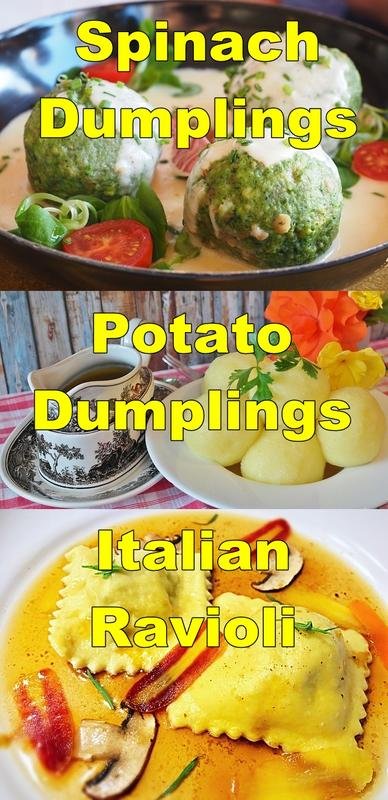
Who I am:
https://steemit.com/introduceyourself/@wentong-syhhae/enthusiastic-intp-polyglot
Suggested translations:
芝麻湯圓 = sesame dumplings
水餃 = boiled Chinese ravioli
鍋貼 = pot stickers
Downvoting a post can decrease pending rewards and make it less visible. Common reasons:
Submit